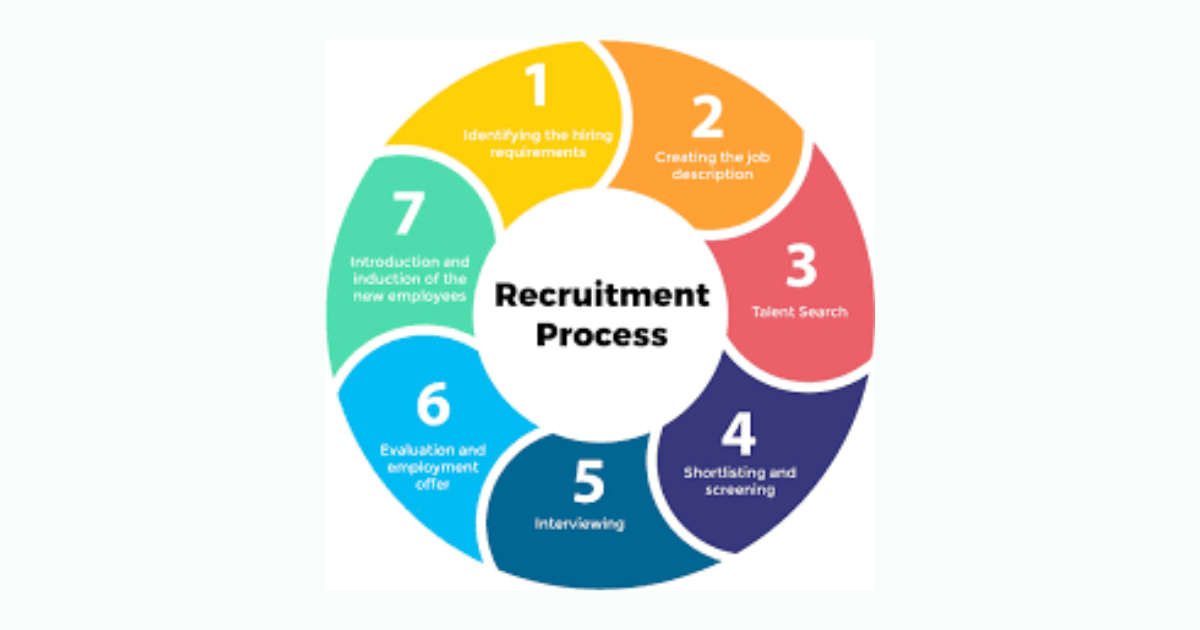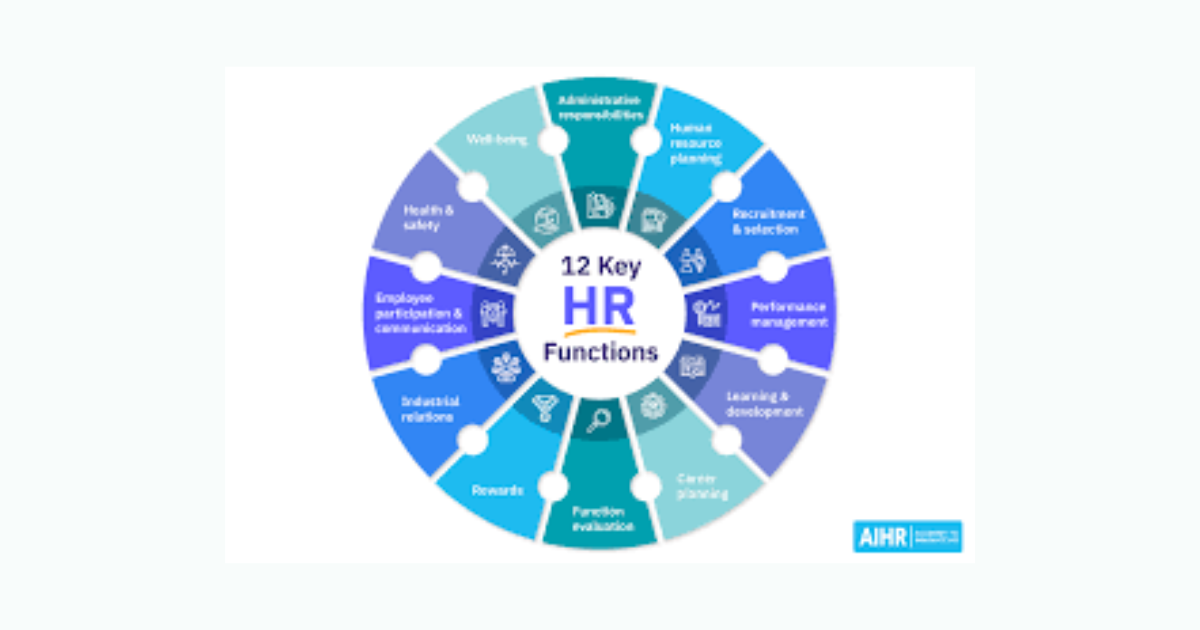Introduction
In the ever-evolving landscape of the workplace, the Human Resources (HR) department plays a pivotal role in shaping and maintaining a thriving, productive, and innovative workforce. Over the years, HR departments have gone through significant transformations, adapting to the dynamic demands of the modern workforce.
One of the most profound changes in recent times has been the integration of Artificial Intelligence (AI) into HR operations. AI is revolutionizing the way HR departments operate, from recruitment and talent management to employee engagement and performance evaluation. In this article, we’ll explore the myriad ways AI is changing HR departments and reshaping the future of work.
-
Streamlined Recruitment Processes

Recruitment is one of the fundamental functions of HR departments, and it’s a process that AI has significantly impacted. Traditional recruitment methods often involve sifting through hundreds of resumes and conducting time-consuming interviews. AI-powered tools can now automate the initial screening of resumes, saving HR professionals valuable time. These tools use natural language processing (NLP) to analyze resumes and match candidates to job descriptions based on keywords and qualifications.
Furthermore, chatbots and virtual assistants are being employed for candidate engagement and initial information gathering. They can answer common questions, schedule interviews, and provide a more personalized experience to applicants. This not only enhances the efficiency of the recruitment process but also improves the candidate experience, making your organization more attractive to potential hires.
-
Data-Driven Decision Making
AI is a game-changer in terms of data analysis and predictive modeling, which can be applied to HR. HR departments generate vast amounts of data, from employee performance metrics to engagement surveys and turnover rates. AI-driven analytics tools can help HR professionals make sense of this data and derive valuable insights.
For instance, AI can predict employee turnover by analyzing historical data, allowing HR to take preemptive measures to retain valuable talent. It can also help identify patterns in employee performance and suggest strategies for improvement. By leveraging AI for data-driven decision making, HR departments can become more proactive and strategic in their operations.
-
Personalized Learning and Development

Employee training and development are crucial aspects of HR. AI can create personalized learning paths for employees by assessing their skills, experience, and learning preferences. These personalized approaches to training can be delivered through e-learning platforms or virtual coaches, offering employees a tailored learning experience.
Additionally, AI can monitor an employee’s progress and provide real-time feedback, making learning more efficient and adaptive. This not only helps employees acquire new skills but also allows HR departments to measure the impact of their training programs more effectively.
-
Enhanced Employee Engagement
Employee engagement is a hot topic in the world of HR. Engaged employees are more productive, loyal, and likely to stay with their organizations. AI can play a vital role in improving employee engagement through various means.
Chatbots and AI-powered virtual assistants can conduct regular check-ins with employees, gathering feedback and insights on their experiences within the organization. This data can be used to identify issues and areas for improvement, helping HR create a more engaged and satisfied workforce.
Moreover, AI can also personalize rewards and recognition programs. By analyzing an employee’s performance and preferences, AI can recommend suitable rewards or recognition strategies, making employees feel more valued and appreciated.
-
Bias Reduction in Hiring
One of the significant challenges HR departments face is bias in the hiring process. Unconscious biases can lead to discriminatory hiring decisions, which is not only unfair but can also harm an organization’s diversity and inclusion efforts. AI can help reduce bias in hiring by focusing on objective criteria and minimizing human judgment.
AI algorithms can be trained to prioritize qualifications, skills, and experience over demographic factors. This helps ensure that candidates are evaluated fairly and without prejudice. However, it’s essential to note that AI is not entirely immune to bias and requires careful monitoring and continuous improvement to address any potential biases in the algorithms.
-
Employee Feedback and Surveys
Collecting and analyzing employee feedback is essential for HR departments to understand the pulse of the organization. AI-driven survey tools can streamline this process. These tools can automatically send out surveys, gather responses, and provide insights based on the data collected.
Additionally, sentiment analysis can be employed to gauge employee morale and identify potential issues. AI can help HR departments detect trends and areas for improvement, allowing them to take action more effectively and make data-driven decisions to enhance the overall work environment.
-
Chatbots for Employee Support
AI-powered chatbots are transforming the way HR departments provide support to employees. These virtual assistants are available 24/7, offering quick responses to common HR-related questions and issues. They can assist with benefits inquiries, time-off requests, and even provide guidance on company policies.
By leveraging chatbots, HR departments can free up valuable human resources to focus on more complex and strategic tasks while ensuring that employees receive immediate support and information when needed.
-
Compliance and Data Security
HR departments are responsible for managing sensitive employee data, which makes compliance and data security critical. AI can assist in automating compliance checks and monitoring data security.
AI tools can alert HR professionals to potential compliance issues, such as expiration of certifications or licenses. They can also help identify unusual patterns or anomalies in data access, which can be indicative of a security breach. By proactively addressing compliance and security concerns, HR departments can ensure that their operations are both efficient and secure.
Challenges and Considerations
While AI offers numerous advantages to HR departments, it’s essential to acknowledge the challenges and considerations that come with its integration. Some key concerns include:
- Ethical and Legal Concerns: The use of AI in HR raises ethical and legal questions, particularly regarding data privacy, bias, and discrimination. HR professionals must ensure that AI tools comply with relevant regulations and ethical guidelines.
- Training and Adoption: HR teams need to acquire the necessary skills and knowledge to effectively use AI tools. This may require training and change management efforts to ensure a smooth adoption process.
- Human Touch: While AI can automate many HR processes, the human touch remains crucial. HR departments should strike a balance between AI-driven automation and maintaining a personalized and empathetic approach to employee interactions.
- Continuous Improvement: AI systems require ongoing monitoring and improvement to minimize biases and inaccuracies. HR departments need to invest in maintaining and fine-tuning AI tools.
Conclusion
The integration of AI into HR departments is a game-changer in the way organizations manage their most valuable asset: their people. From streamlined recruitment processes to data-driven decision-making, AI is reshaping the HR landscape. While there are challenges and considerations to address, the benefits are clear.
By harnessing the power of AI, HR departments can become more strategic, efficient, and employee-centric, ultimately leading to better organizational outcomes and a more satisfying work experience for all. As technology continues to evolve, the future of HR will undoubtedly be shaped by AI-driven innovation.


